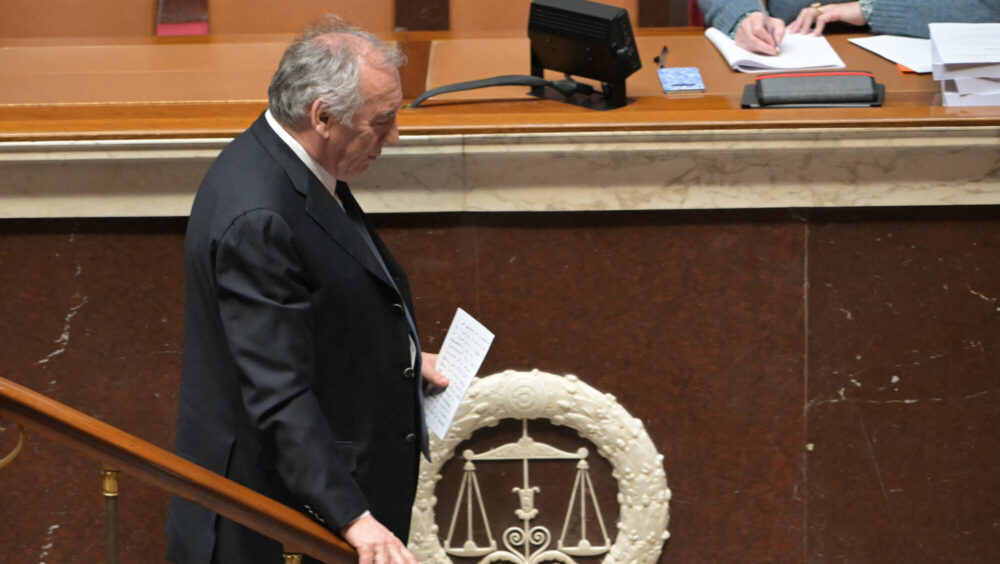
François Bayrou
Bertrand GUAY / AFP
A month and a half after its appointment, François Bayrou’s government, like the previous government, has ended up ramming through the French government’s budget for 2025 by twice resorting to Article 49.3 of the Constitution, which allows it to dispense with the vote of parliament. A new motion of censure will be proposed against the PM, but the Socialists’ refusal to support it should guarantee—temporarily—his government’s survival. This scenario confirms that, once again, the centrist option at the top of the state is just another name for a left-wing policy that does not take responsibility.
The draft state budget was the subject of a compromise reached at the end of last week in the select committee. Some of its measures were included in the draft presented by the previous prime minister, Michel Barnier. However, Bayrou has incorporated concessions demanded by the Socialists, who had previously opposed his budget, but who have now thrown their support behind him.
Bayrou’s objective is to reduce the public deficit to 5.4% of GDP—still a long way from the 3% required by Brussels, which cannot be achieved for several years.
The proposed plan is a patchwork of temporary measures making a clumsy attempt to balance the books, with no overall vision or coherence.
On the expenditure side, the plan is characterised by an overall reduction in public spending of 2%—the first reduction for 25 years. Major cuts have been made in several ministries (culture, public development aid, agriculture, research, higher education, ecology, etc.), although concessions have been made on sensitive points, such as maintaining 4,000 teaching posts, as demanded by the Socialists. The budget for state medical aid (AME, care for illegal immigrants) has been cut by €111 million compared with Barnier’s budget and is therefore maintained at the 2024 level (around €1.3 billion)—a far cry from the far-reaching reform of the system sought by the Right.
On the revenue side, in the spirit of what Barnier had already proposed, all sorts of temporary taxes have been devised to bolster the state coffers from time to time, such as the ‘exceptional contribution’ on the profits of large companies, intended to bring in around €8 billion, which has provoked the anger of Bernard Arnault, CEO of the French luxury group LVMH and one of the richest men in the world.
However, the agreement with the Socialists proved insufficient to secure a majority of MPs for the text. On Monday, François Bayrou therefore had to twice resort to using Article 49.3 of the Constitution to force his budget through. Unsurprisingly, as they had announced, the LFI MPs put forward a motion of censure in an attempt to counter the use of Article 49.3 and topple the government at the same time.
The situation is now significantly different from what led to the fall of Barnier at the beginning of December 2024. The Socialists are the new arbiters in the national assembly. Until now, they had been members of the New Popular Front coalition, alongside the Greens, the Communists, and the far-left La France Insoumise (LFI), but this time, they preferred to negotiate. In return for the favours they obtained, they undertook not to bring down the government.
This U-turn by the Socialists deprives the Rassemblement National (RN) of part of its role in the Assembly: from now on, the RN can vote for censure without it having any effect, because the Socialist group will prevent it from being adopted.
The manoeuvre to bring the Socialists closer to the Bayrou government again proves that the centrism and balance displayed by the prime minister always ends in a tactical victory for the Left. Be that as it may, despite the foreseeable adoption of the budget, his political legitimacy appears more precarious than ever.
